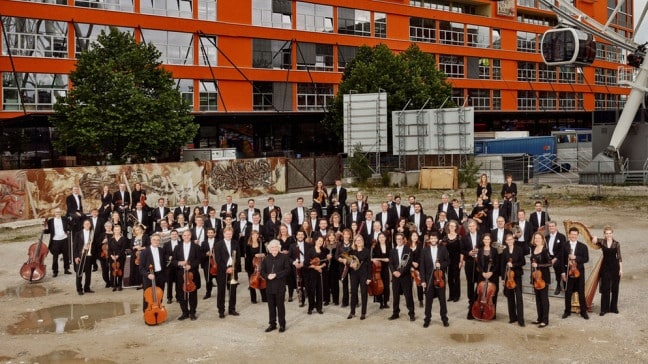The pianist who dropped dead in Carnegie Hall
mainOur colleague Michael Johnson has written an extraordinarily fascinating piece about the tragic life and death of this great artist below. Click here to read.


Our colleague Michael Johnson has written an extraordinarily fascinating piece about the tragic life and death of this great artist below. Click here to read.

He is already music director of the Metropolitan…

The tenor Ian Bostridge shocked Symphony Hall Birmingham…

The ARD competition has sacked Liang Wang, principal…

The conductor continues his agitation for a new…

Session expired
Please log in again. The login page will open in a new tab. After logging in you can close it and return to this page.
I first became aware of Simon Barere in the early 1970s while a student at Juilliard when my chamber music coach, William Lincer, told us about him. He was truly an amazing pianist – and luckily, his son Boris was able to record some of his Carnegie Hall recitals privately. One only has to hear is performance of Blumenfeld’s Etude for the Left Hand to get an idea of his amazing facility. But despite his performance of the Schumann Toccata, which can only be described as infamously fast, he played with great poetry and flexibility. Many of his studio and live recordings have been available on the APR label. For those not familiar with his playing, they are definitely worth seeking out.
Just listen to his Liszt Leggierezza- a technique almost beyond human comprehension.
Just listen to his Liszt Leggierezza and you will witness a technique almost beyond human comprehension.
I hope it’s better than Arrau’s, which is really quite prosaic.
Arrau on the whole was a far more sensitive and profoun player than Barere who, for my taste, was a bit of a banger and a speed merchant.
Barere was a HUGE talent and a pianistic aristocrat. (I’ll be 54 in May–gosh, I really hope that doesn’t happen!!!!)
Go and enjoy his legacy in recordings.
A fact known to few people is that the day before the fatal concert at Carnegie Hall, Simon Barere met Guiomar Novaes in the Steinway basement, on 57th Street. Barere told Novaes that he was very anxious about playing the following day and, in order to calm him down, Novaes rehearsed the Grieg concerto with him, playing the second piano and gave him some advice. Present at the concert, Guiomar Novaes felt responsible, claiming that she encouraged him to play when he wished to cancel the concert and said to her friends: “I killed him!”
Hello. Are you by any chance the Rosana Martins who recorded some Mozart for the Connoisseur Society in the late 60s?
Barere’s recordings are certainly amazing from a pianistical point of view, but I tend to agree with Harold Schonberg, who not only wrote that “his fingers outran his brain” as quoted by Michael Johnson, but also wrote the following in his book “The Great Pianists”:
“Barere was a virtuoso-plus: not one of the remarkable musical minds, but a playing mechanism startling for speed, accuracy and disregard of difficulties. Barere, too, had a fine, colorful tone. The harder the music — Don Juan Fantasy, Islamey — the more Barere reveled in it, and the faster he played it.”
The article by Johnson is informative, but not for the first time I find it quite annoying to read how many errors there are in the spelling of words and names: aficianado, Ignatz Friedman, Schuman, Felix Bumenfeld, Jascha Heifitz…
Harold Schonberg wrote that Richter’s playing was ‘provincial’ so I’m not so sure whether I completely trust his assessments.
That quote is incomplete and very much simplified.
Actually he wrote about Richter that he was “quite the opposite of Gilels: introspective, erratic, capable of great flights of imagination and also of inexplicable gaucheries”.
He wasn’t referring particularly to Richter’s playing when he mentioned the word “provincial”, but to the Russian piano school (Gilels, Richter, Ashkenazy, Flier, Davidovitch, Bashkirov, Zak, Ginzburg etc.) as a whole: “…very often, there was a noticable provincialism in their playing. It was provincial in that it reflected only a specific school.”
What he meant was that these Russian pianists were relatively isolated, as opposed to many Western artists who were more cosmopolitan in their musical education, and they fell back on a Romantic tradition that had its roots in Anton and Nicholas Rubinstein — not necessarily a bad thing!
Of course, Schonberg wrote all this in the early ’60s, when the Soviet Union and the Iron Curtain were still very much a reality.
Didn’t another pianist drop dead also while playing for Ormandy and the Philadelphians?
I can’t seem to recall his name, but recall reading about the story. Perhaps it was Barere, but I believe it was another chap and it happened at the Academy of Music. Someone help me out here.
Mr Barere defied physical constraints. His mind worked at warp speed towards the end of several recordings. Not so much at the beginnings. He was a highly educated musician who kept very good company with other notables as Hoffman and Horowitz. He seldom practiced. He had a genius mentality for playing the piano. His dexterity was matched by no one.